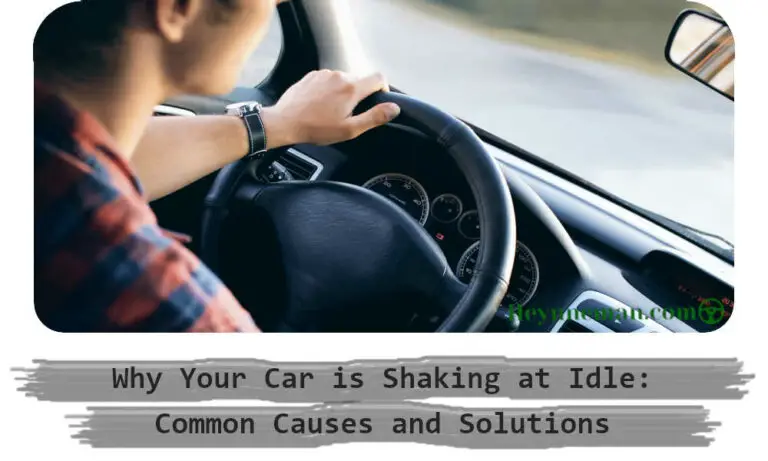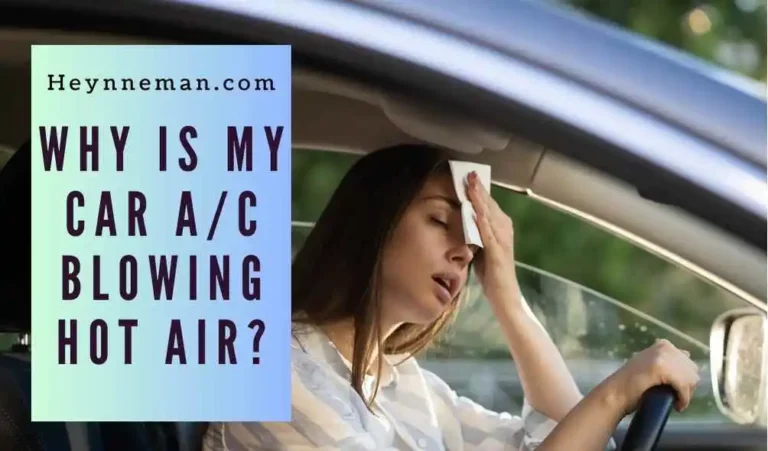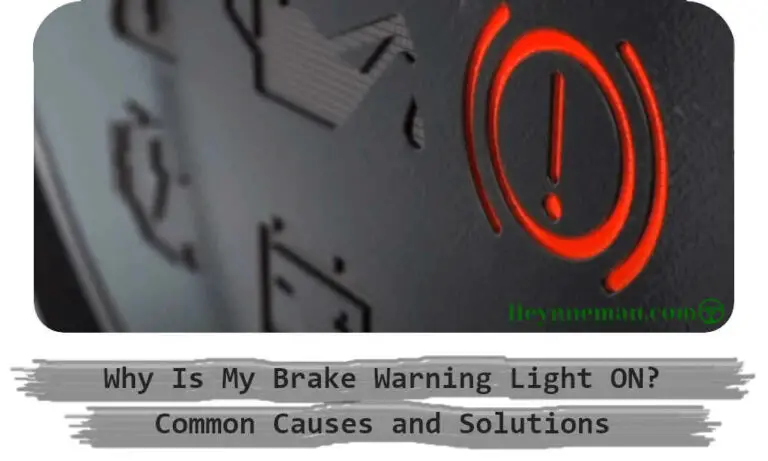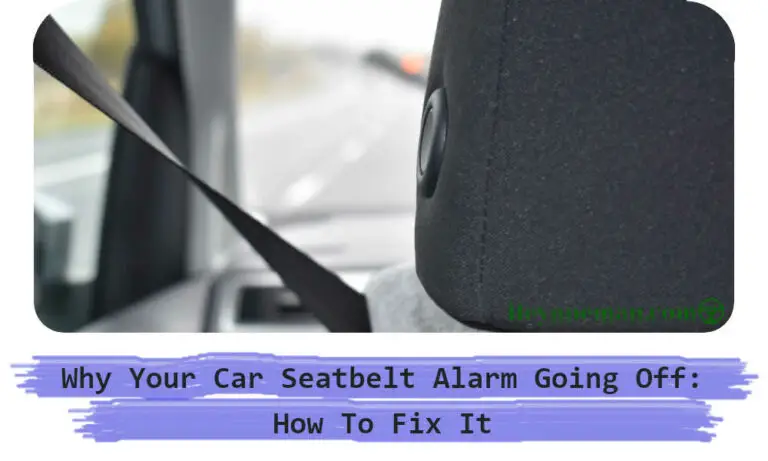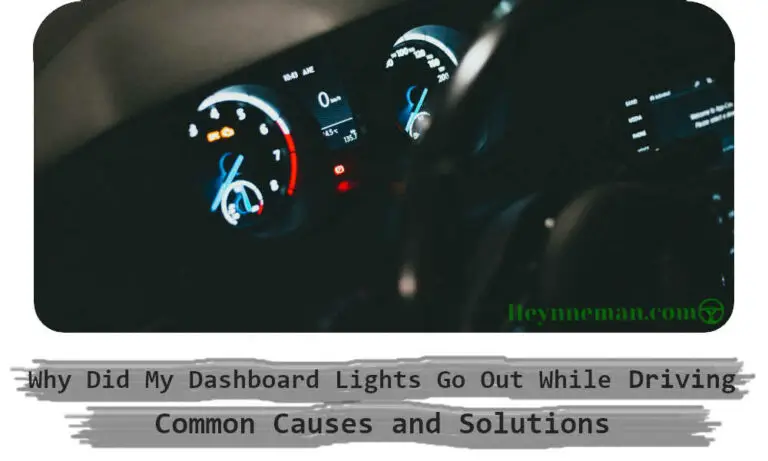Why Does My Car Jerk When I Brake? Must Read
Have you ever experienced your car jerking or vibrating when you brake? It can be a scary and concerning issue that requires your attention. Not only can it be dangerous, but it can also indicate a more severe problem with your vehicle.
In this blog post, we’ll go over the possible causes of a jerking car when braking, the signs and symptoms to look out for, and what you can do to fix the issue.
Possible Causes of a Jerking Car When Braking
The most common causes of a jerking car when braking are worn brake pads, rotor issues, loose or damaged suspension components, brake caliper problems, and transmission issues.
Worn Brake Pads
Brake pads are designed to wear down over time and require replacement periodically. If your brake pads are worn, they can cause vibrations and jerking when you brake. This issue can be easily fixed by replacing the brake pads.
Rotor Issues
Rotors can also wear down over time, causing vibrations and jerking when brazing. If you notice grooves or wear on the surface of the rotor, it may need to be resurfaced or replaced.
Loose or Damaged Suspension Components
Loose or damaged suspension components can also cause your car to jerk when you brake. If your car’s suspension is flexible, it can cause your vehicle to vibrate and shake when you brake. This issue can be fixed by tightening or replacing the damaged components.
Brake Caliper Problems
The brake callipers hold the brake pads and apply pressure to the rotor. If the brake callipers are not functioning correctly, they can cause your car to jerk when you brake. This issue can be fixed by replacing the faulty brake callipers.
Transmission Issues
If you notice jerking when you brake and your car has an automatic transmission, it may indicate a transmission issue. Transmission problems can cause your car to jerk and vibrate when you brake. This issue requires a mechanic’s attention to diagnose and fix the problem.
Signs and Symptoms of a Jerking Car When Braking
The signs and symptoms of a jerking car when braking includes car vibrations, grinding or squealing sounds, and reduced brake responsiveness. If you notice any of these signs, addressing the issue immediately is crucial.
- Vibrations
If you feel a strong vibration in your car when you press the brake pedal, it could indicate a problem. The vibration may feel like a pulsating sensation and can be strong enough to make your car jerk.
- Grinding or Squealing Sounds
You may hear a grinding or squealing sound when you apply the brakes. These sounds can be an indication that your brake pads are worn down and they need to be replaced.
- Reduced Brake Responsiveness
If you notice that your car takes longer to stop or requires more pressure on the brake pedal to come to a stop, it could be a sign of a brake problem. Reduced brake responsiveness can be dangerous, and it’s crucial to address the issue immediately.
- The car Pulls to One Side
If your car pulls to one side when you brake, it could indicate a problem with your brakes or suspension. This issue can make your car jerk and can be a safety hazard.
- Warning Lights
Many modern cars have warning lights that indicate brake problems. If you see a warning light on your dashboard, getting your vehicle checked out by a professional mechanic is essential.
How to Diagnose the Issue
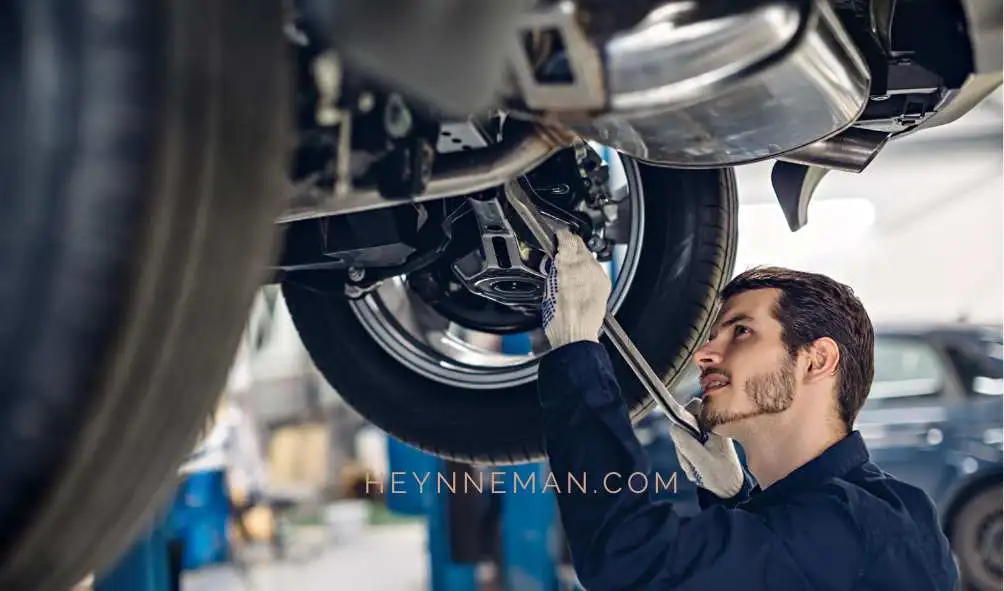
To diagnose the issue, you can check for brake pad wear, inspect the rotors, inspect suspension components, check brake calipers, and diagnose transmission issues. These diagnostic steps can help you identify the underlying issue causing your car to jerk when you brake.
- Check Your Brake Pads
Worn brake pads are a common cause of jerking when braking. You can check the brake pads by looking through the wheels and checking the thickness of the brake pad. If the pads appear worn down, it’s time to replace them.
- Inspect the Brake Rotors
The brake rotors can also be a cause of jerking when braking. You can inspect the brake rotors by looking through the wheels and checking for signs of wear, such as cracks or grooves. If the brake rotors are damaged, they will need to be replaced.
- Check the Brake Fluid
Low brake fluid levels can also cause jerking when braking. Check the brake fluid level by looking at the reservoir. If the fluid level is low, you can top it off with brake fluid.
- Inspect the Suspension System
A problem with the suspension system can also cause jerking when braking. Check for worn or damaged suspension components, such as ball joints or bushings.
- Test Drive the Car
Take your car for a test drive and observe how it behaves when braking. Note any specific conditions that cause the jerking and try to replicate them during the test drive. This information can be helpful when you take your car to a professional mechanic.
If you cannot diagnose the issue on your own or are unsure about what you are seeing, it’s always best to take your car to a professional mechanic for an inspection. They have the tools and expertise to diagnose and fix any issues with your brakes.
How to Fix a Jerking Car When Braking?
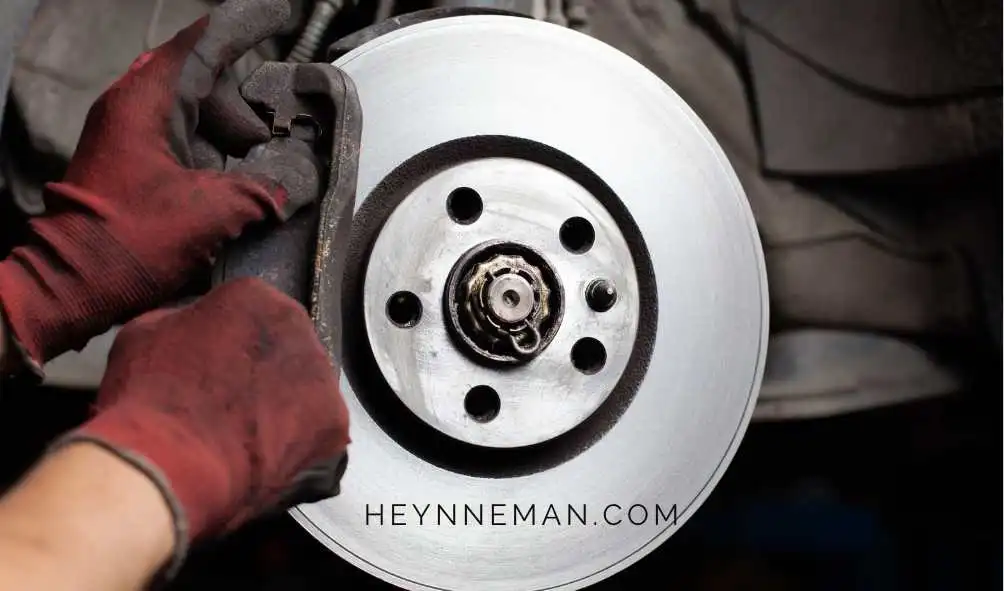
To fix the issue, you may need to replace worn brake pads, resurface or replace rotors, tighten or replace suspension components, replace faulty brake calipers, or repair or replace transmission components. It’s important to address the issue promptly to ensure safety and prevent further damage to your car.
- Replace Worn Brake Pads
f your brake pads are worn down, you need to replace them. Worn brake pads can cause jerking when braking and can be dangerous. A professional mechanic can replace your brake pads and ensure your braking system works correctly.
- Resurface or Replace the Brake Rotors
If the brake rotors are damaged or worn, they will need to be resurfaced or replaced. A mechanic can inspect your brake rotors and determine the best course of action.
- Bleed the Brakes
If air has gotten into the brake lines, it can cause jerking when braking. Bleeding the brakes can remove the air and improve brake performance.
- Replace the Calipers
If the brake calipers are damaged or worn, they must be replaced. The calipers hold the brake pads in place, which can affect brake performance if they do not function correctly.
- Fix the Suspension System
A problem with the suspension system can cause jerking when braking. If the suspension components are worn or damaged, they must be replaced.
Car Jerks when Accelerating | Car Troubleshooting
In Conclusion
A jerking car when braking is a concerning issue that requires attention. You can diagnose and fix the issue promptly by understanding the possible causes and signs of the problem. Addressing this issue promptly will ensure safety and prevent further damage to your car. If you need clarification on diagnosing or fixing the issue, it’s best to consult with a professional mechanic.

